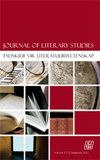The Role of Prostitutes in the Political Economy of Corruption in Ben Mtobwa’s Pesa Zako Zinanuka and Dares Salaam Usiku
IF 0.1
4区 文学
0 LITERARY THEORY & CRITICISM
引用次数: 0
Abstract
Summary Corruption is a vice that continues to afflict many countries in the world, those of Africa inclusive. It is inimical to the rule of law, honesty and integrity. Those involved in corruption subvert honesty while privileging depravity. In the final analysis, the moral fibre of a people becomes eroded as corruption takes the centre stage. Corruption has been a common subject matter in many literary works. Such works have depicted the ruling class and their henchmen involving themselves in the morass, eventually bringing nations economies to their knees. While literary critics have focused on the role of politicians and tycoons in corruption in literary works, little attention has been given to a number of minorities in the malfeasance. This article, which is hinged on African feminism as espoused by Gwendolyn Mikell and Oreyonke Oyewumi reports the findings of an investigation into the role of the prostitutes in the political economy of corruption in Tanzania’s Ben Mtobwa’s Pesa Zako Zinanuka (Your Money Stinks) and Dares Salaam Usiku (Dares Salaam by Night). The article argues that prostitution is hierarchical and asymmetrical in male-female relations. Male clients exert power and domination over the female prostitutes, and little wonder that harlots accrue any significant benefit from the trade. The article demonstrates that prostitutes are integral to corruption as they cavort with politicians and tycoons, where they are used as sidekicks, while in other instances they play the role of conduits in scams. They are also used as covert security operators for the corrupt, while playing stumbling blocks to the anticorruption crusaders. The article argues that this is evidence of the subordination of women as a section of menfolk thrive in corruption.妓女在本·姆托瓦的Pesa Zako Zinanuka和dare Salaam Usiku的腐败政治经济学中的作用
腐败是一种恶习,继续困扰着世界上许多国家,包括非洲国家。这对法治、诚实和正直是有害的。那些卷入腐败的人破坏了诚实,同时纵容了堕落。归根到底,当腐败占据中心舞台时,一个民族的道德品质就会受到侵蚀。腐败一直是许多文学作品的共同主题。这些作品描绘了统治阶级和他们的党徒卷入泥沼,最终使国家经济陷入瘫痪。虽然文学评论家关注的是政治家和大亨在文学作品中的腐败作用,但很少关注一些少数民族的渎职行为。本文以Gwendolyn Mikell和Oreyonke Oyewumi所倡导的非洲女权主义为主题,报导了一项调查的结果,调查了妓女在坦桑尼亚本·姆托瓦的《Pesa Zako Zinanuka》(Your Money臭)和《dare Salaam Usiku》(《dare Salaam by Night》)腐败政治经济中的作用。文章认为,卖淫在男女关系中具有等级性和不对称性。男性客户对女性妓女施加权力和支配,难怪妓女从交易中获得了巨大的利益。这篇文章表明,妓女是腐败不可或缺的一部分,因为她们与政客和大亨们厮混,在那里她们被用作助手,而在其他情况下,她们在骗局中扮演着管道的角色。他们还被用作腐败分子的秘密安全人员,同时成为反腐败斗士的绊脚石。这篇文章认为,这是女性作为男性的一部分在腐败中茁壮成长的从属地位的证据。
本文章由计算机程序翻译,如有差异,请以英文原文为准。
求助全文
约1分钟内获得全文
求助全文
来源期刊

Journal of Literary Studies
Multiple-
CiteScore
0.50
自引率
0.00%
发文量
0
期刊介绍:
The Journal of Literary Studies publishes and globally disseminates original and cutting-edge research informed by Literary and Cultural Theory. The Journal is an independent quarterly publication owned and published by the South African Literary Society in partnership with Unisa Press and Taylor & Francis. It is housed and produced in the division Theory of Literature at the University of South Africa and is accredited and subsidised by the South African Department of Higher Education and Training. The aim of the journal is to publish articles and full-length review essays informed by Literary Theory in the General Literary Theory subject area and mostly covering Formalism, New Criticism, Semiotics, Structuralism, Marxism, Poststructuralism, Psychoanalysis, Gender studies, New Historicism, Ecocriticism, Animal Studies, Reception Theory, Comparative Literature, Narrative Theory, Drama Theory, Poetry Theory, and Biography and Autobiography.
 求助内容:
求助内容: 应助结果提醒方式:
应助结果提醒方式:


